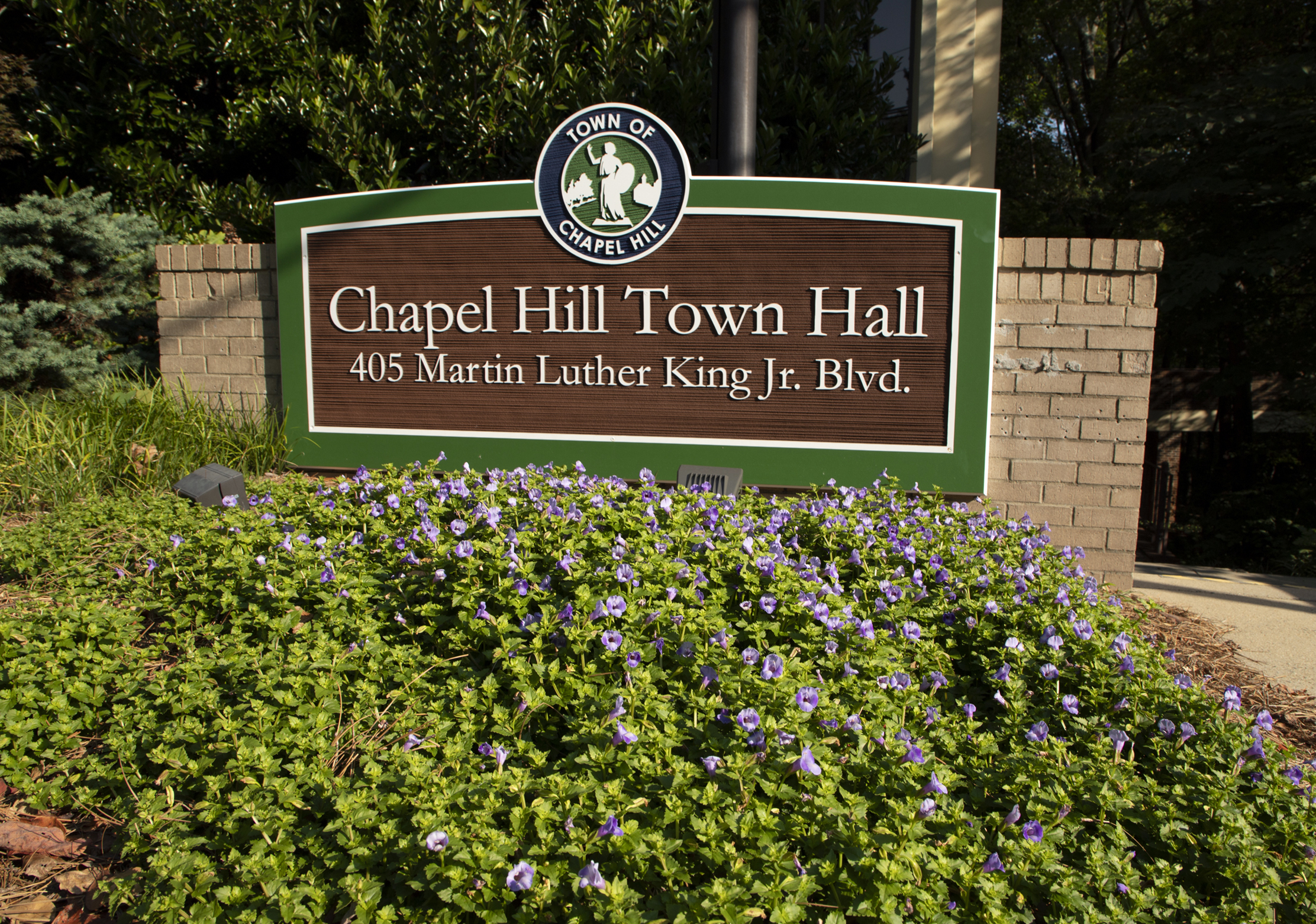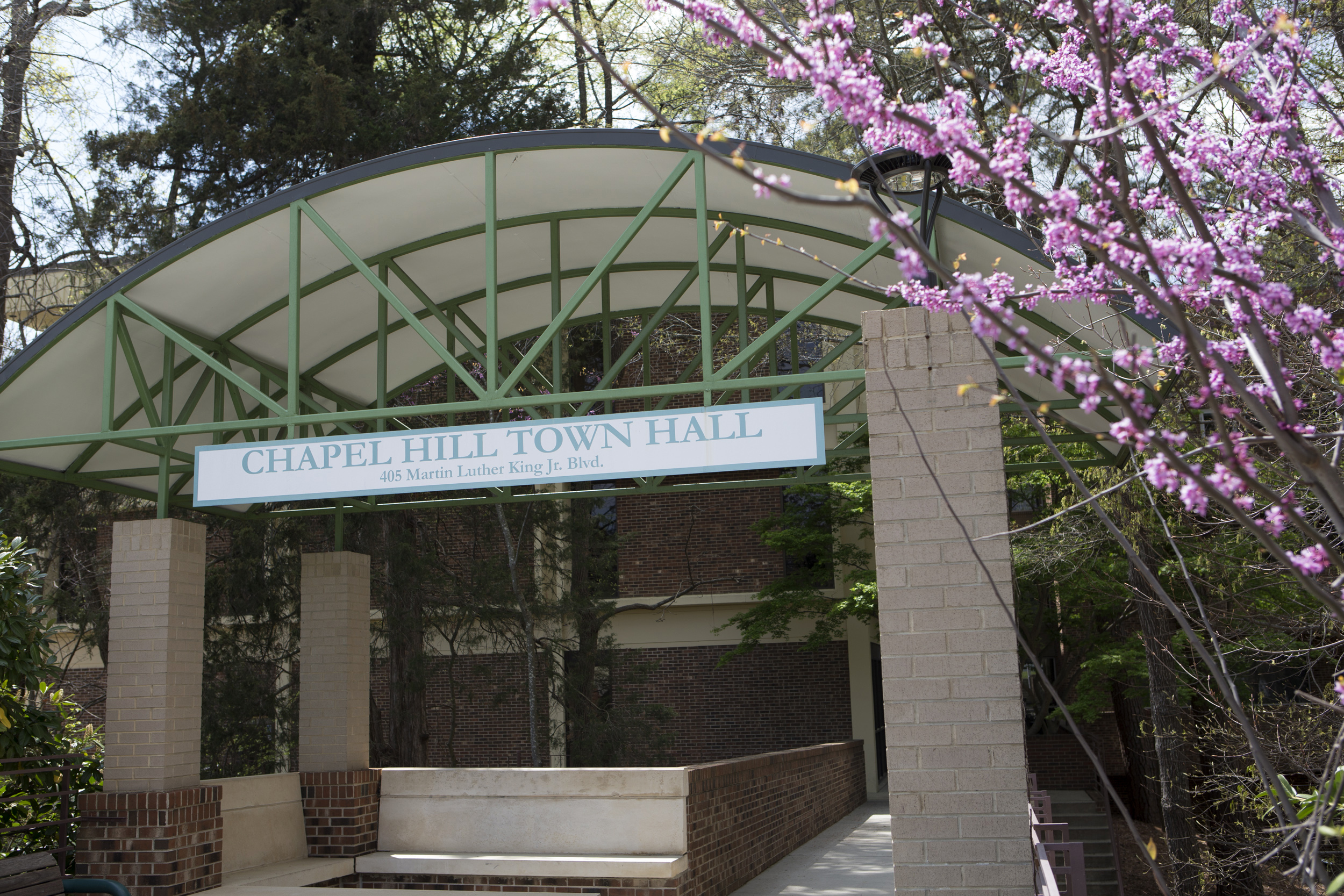Users of the Chapel Hill Public Library will no longer accrue overdue fines from late materials.
Starting on Wednesday, July 1, the library will adopt a fine-free model increasingly seen across the country. According to a release from the Town of Chapel Hill, the move will help address some community members’ access to resources and equity issues.
The shift to the fine-free model was approved by the Chapel Hill Town Council as part of the town’s Fiscal Year 2020-2021 budget at its final meeting before a summer break.
According to the town, library staff have reviewed data and other libraries’ experiences in consideration of adopting this model for years. Library Director Susan Brown said in the release hundreds of libraries in areas of all sizes, like Washington D.C., Chicago and even Wake County in North Carolina, have seen benefits from adopting the model.
“Most all of them indicated that soon after adopting a fine-free model,” Brown said, “both lapsed users and long-lost materials came back in great numbers, and that well after the model was in place, items were returned in a timely fashion.”
In the Chapel Hill Public Library’s previous model, users who kept items past their due date would accumulate fines for each successive day. The charge for the fine would be requested after items were turned in, but some materials would never be returned to the library.
Under the fine-free model, a user who keeps item past the due date will receive a series of notices reminding them the materials should be returned. If the item is not returned after a certain period of time, the library will send a bill for the replacement cost of the materials and freeze the user’s ability to borrow more things. Users will suspended accounts can then either return the item or pay the bill for the item to be replaced in order to have their access restored.
Jess Anderson, a Chapel Hill Town Council member and liaison to the Library Advisory Board, said the revenue received from fines made up just one percent of the library’s operating budget. With the penalties significantly affecting some community members more than others, it made sense to change Chapel Hill’s model.
“When the Board and Council dug into this issue,” Anderson said in the release, “we found that fines disproportionately affect low-income and traditionally marginalized populations. This policy change is one more way that we can put our values into action in Chapel Hill.”
To learn more about the Chapel Hill Public Library and its collections, services, programs, and policies, visit its website.
Chapelboro.com does not charge subscription fees. You can support local journalism and our mission to serve the community. Contribute today – every single dollar matters.
Related Stories
‹
![]()
CHTC Approves Budget With Two-Cent Tax HikeCHAPEL HILL- The Chapel Hill Town Council signed off on next year’s budget on Monday night, voting to raise the property tax rate for the first time in four years. The approved $94 million dollar spending plan balances the budget by raising the property tax rate by two cents, to 51.4 cents per $100 of […]
![]()
Town Council Finds More Money For The CH LibraryThe additional funding would keep the library open approximately 64 hours a week, just four shy of the level it operated at before..."
![]()
CHTC Weighs Library and Transit Budget OptionsCHAPEL HILL- The Chapel Hill Town Council is considering a two-cent property tax rate increase to balance next year’s budget. Half of that would go to fund transit, which makes up about 20 percent of the town’s expenditures. Many on the council seem to support the plan, but at a budget work session on Monday, […]
![]()
Chapel Hill Town Council Tackles Library FundingThe Town Council faces mounting pressure to increase library funding, but that’s just one of many tough choices this budget season.

Chapel Hill Town Council Receives Budget Proposal for Fiscal Year 2025Chapel Hill Town Manager Chris Blue presented the town’s recommended budget for Fiscal Year 2025 to the Chapel Hill Town Council on May 1.

In Budget Talks, Chapel Hill Town Council Weighs Funding IFC for Homeless SheltersWith a budget vote scheduled June 8, Chapel Hill officials have several issues yet to resolve - including an urgent request from the IFC.

Chapel Hill, Orange County Propose Property Tax HikesResidents of Orange County – and especially Chapel Hill – may be facing higher property taxes this year, as the local budgeting process gets under way.

Local Government Meeting Schedule: May 2021This series of posts will be made monthly on Chapelboro to help inform our community when local government meetings will be. All meeting days, locations and times may be subject to change. Check respective town websites for additional information. Budget season is upon our local governments, meaning a busy May schedule full of work sessions, […]

Chapel Hill Public Library Wins Major Grant to Upgrade Computer, Wi-Fi ServicesA federal project looking to improve public computer access and technology services awarded the Chapel Hill Public Library with funding earlier this week. The library will receive nearly $150,000 of competitive grant money to improve computers, Wi-Fi service and multilingual assistance to better serve community members without proper access to such resources, according to the […]
![]()
Chapel Hill Public Library Moves to Fine-Free Model for PatronsUsers of the Chapel Hill Public Library will no longer accrue overdue fines from late materials. Starting on Wednesday, July 1, the library will adopt a fine-free model increasingly seen across the country. According to a release from the Town of Chapel Hill, the move will help address some community members’ access to resources and equity […]
›






